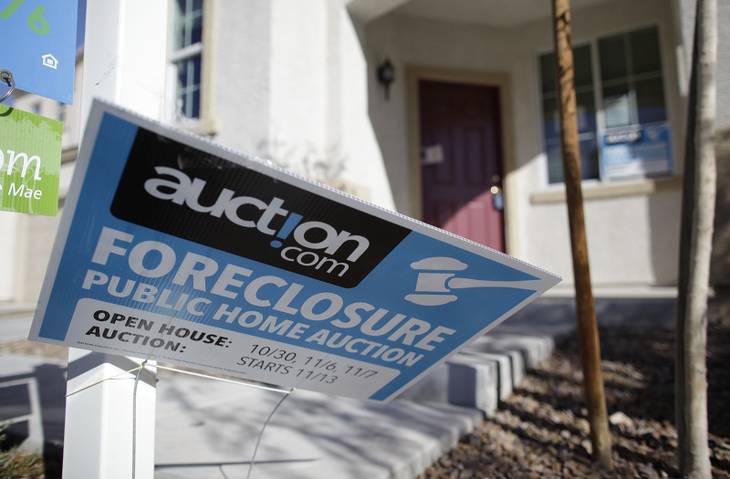VEGAS INC coverage
Just one day before a law kicked in making it easier to avoid foreclosure, banks unleashed a torrent of filings to seize homes from delinquent Las Vegas borrowers.
A total of 934 notices of default were filed Monday in Clark County, the largest one-day total ever for the region, according to LV Default, a Las Vegas research firm.
By comparison, 1,419 default notices were filed statewide in August, an average of 46 per day, according to RealtyTrac data.
Notices of default start the foreclosure process.
“We haven’t seen numbers like this since before AB284 was enacted,” LV Default Director Tony Martin said today, referring to state Assembly Bill 284.
That measure, which took effect in October 2011, required banks to submit more paperwork before seizing homes, drastically slowing the foreclosure process.
Meanwhile, state Senate Bill 321, known as the Homeowner’s Bill of Rights, took effect today. The law could stretch out the foreclosure process and make it easier to avoid foreclosure through renegotiating a loan or completing a short sale, in which a bank agrees to sell a house for less than what’s owed on the mortgage.
The law requires lenders to have a single point of contact for struggling borrowers, who say banks are bogged down by bureaucracy and give conflicting information.
It also bars bankers from trying to seize a person’s home while also pursuing a short sale at the same time, and it forces lenders to provide homeowners with foreclosure prevention options and other information before seizing a house.
Banks must now give advanced notice to delinquent borrowers at least 30 days before filing a notice of default. Homeowners then get 30 days to apply for mortgage assistance; if denied, they get another month to appeal, according to Las Vegas lawyer Troy Atkinson.
What’s more, the law will make it easier for borrowers to short sell their home to a friend or relative and then rent or buy it back.
Banks typically don’t allow those arrangements because they don’t want delinquent borrowers to “benefit” from their own financial woes, according to Bill Uffelman, CEO of the Nevada Bankers Association.
Losing a house to foreclosure wreaks greater havoc on a person’s credit rating — and thus, the ability to get another mortgage loan anytime soon — than selling through a short sale, he said.
With a prearranged buyback, borrowers could, in theory, get a new loan to purchase their house at a much lower price than what they originally paid, meaning their monthly mortgage payments would be a lot less.
But under SB321, bankers are essentially barred from forcing homeowners to sign an “arm’s length” agreement, which certifies a short sale is between people who didn’t know each other before the deal came about and who had no prior setup to lease or sell the house back to the previous owner.
Now, underwater borrowers can short sell to anyone they want under SB321, as long as the bank approves the terms.
